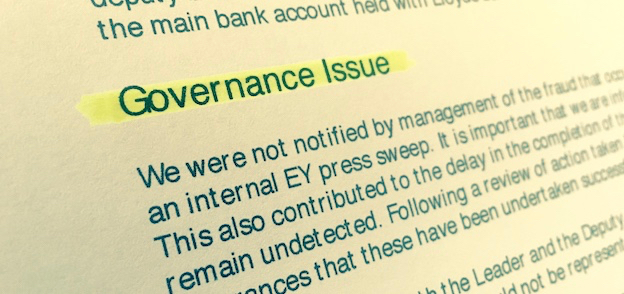
A council leader has survived an attempt to remove her from a key financial oversight committee, claiming external auditors “misunderstood” guidance aimed at ensuring impartial scrutiny.
Jo Lovelock, leader of Reading Borough Council, last week faced a motion calling on her to step down from the authority’s audit & governance committee, on which she is deputy chair.
In January, the council’s auditor Ernst & Young, cited Chartered Institute for Public Finance and Accountancy (CIPFA) guidance in recommending that the composition of the committee be reviewed.
The report said: “We identified that both the leader and the deputy leader are members of the audit and governance committee.
“Guidance issued by CIPFA indicates that leadership of the council should not be represented on the committee. We recommend that the composition of the committee is reviewed.”
Last week, Liberal Democrat councillor Ricky Duveen put a motion before the council calling on lead councillors, including Lovelock, to step down.
The wording of the motion said: “This council recognises that having lead councillors sitting on the committee, part of whose job is to scrutinise their own work and decisions, will not be seen by the citizens of Reading as either unbiased or independent in its role of auditing and scrutinising the work of the council.” The motion was voted down.

However, during a debate on the motion, Lovelock said: “I do think it is important to recognise the difference between this council, which operates a committee system and has done for about four years now, and the old system of scrutiny and cabinet.
“I am very happy to have a conversation with the auditors when I have time, and there are other things that are more urgent, but I do want to have that conversation with them because I think they fundamentally misunderstand the way in which we are running this council.”
Other councillors on the committee read aloud from sections of CIPFA’s Audit Committees: Practical Guidance for Local Authorities and Police, 2013, claiming the text supported the leader’s view that the guidance does not apply to the council’s governance arrangements.
Tony Page, Lovelock’s deputy, who also sits on the audit & governance committee, told the meeting: “We will be taking this up with the auditors. I don’t have any problem discussing in the public.
“We will discuss this with CIPFA. We believe the guidance needs updating on the basis that more and more authorities have moved to a committee system or are looking at doing that.”
Under the Localism Act 2011, principal authorities were allowed to return to decision-making by committees, the historic method of local government administration before the cabinet system was introduced.
However, CIPFA chief executive Rob Whiteman appeared to contradict the leadership’s interpretation of the guidance.
He told Room151: “To carry out its duties fully, in an independent and non-political manner, an audit committee must be free to challenge or hold to account the executive on matters of governance, risk and control. CIPFA’s guidance on the issue is clear that ‘the leader of the cabinet or administration or the elected mayor should not be a member of the audit committee’.
“In exceptional cases where an executive member sits on the committee, there should be other compensating arrangements in place to ensure independence, for example a majority of independent members or an independent chair. The executive member should not chair the committee.”
He said that the guidance covers all types of governance structure, adding that the text is currently undergoing a review.
“But on this matter of audit committee membership, the concept of impartiality will undoubtedly remain a prerequisite,” he added.
Councillor Duveen told Room151: “By continuing to sit on the committee, the leader is scrutinising her own policies.”
Ernst & Young’s report also issued an “adverse value for money” conclusion, saying: “We are not satisfied that the council has put in place proper arrangements to secure economy, efficiency and effectiveness in its use of resources for the year ended 31 March 2016.”
The audit found that “the financial and performance information used by the council is not always accurate and reliable and therefore did not help informed decision making”.
In addition, financial reporting “did not identify the amount of the financial pressures that the council faces in 2016/17 and in particular the overspends in children’s services.”
Ernst & Young declined to comment on the case when contacted by Room151.












